Related Research Articles

A film festival is an organized, extended presentation of films in one or more cinemas or screening venues, usually in a single city or region. Increasingly, film festivals show some films outdoors.

The Cannes Film Festival, until 2003 called the International Film Festival, is an annual film festival held in Cannes, France, which previews new films of all genres, including documentaries, from all around the world. Founded in 1946, the invitation-only festival is held annually at the Palais des Festivals et des Congrès. The festival was formally accredited by the FIAPF in 1951.
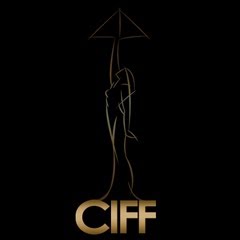
The Cairo International Film Festival is an annual internationally accredited film festival held in Cairo Opera House. It was established in 1976 and has taken place every year since its inception, except for 2011 and 2013, when it was cancelled due to budget limitations and political instability. It is the only international competitive feature film festival recognized by the FIAPF in the Arab world and Africa, as well as the oldest in this category.

Yousry Nasrallah is an Egyptian film director.

The Palais des Festivals et des Congrès is a convention centre in Cannes, France. It is the primary venue for the annual Cannes Film Festival, the Cannes Lions International Festival of Creativity, and the NRJ Music Awards. The second building was unveiled in 1982.

The Best Director Award is an award presented annually at the Cannes Film Festival since 1946. It is given for the best achievement in directing and is chosen by the International Jury from the films in the Competition slate at the festival.
Mârouf, savetier du Caire is an opéra comique by the French composer Henri Rabaud. The libretto, by Lucien Nepoty, is based on a tale from the Arabian Nights. Mârouf was first performed at the Opéra-Comique, Paris, on 15 May 1914. The premiere was a great success and Mârouf became Rabaud's most popular opera. The score makes great use of oriental colour. The Western Hemisphere premiere of Mârouf was given at the Teatro Colón in Buenos Aires on July 24, 1917, with Armand Crabbé as Mârouf, Ninon Vallin as Saamcheddine, and Marcel Journet as the Sultan, conducted by Gino Marinuzzi. The United States premiere of the opera was given at the Metropolitan Opera on December 19, 1917, with Giuseppe De Luca in the title role, Frances Alda as Princess Saamcheddine, and Pierre Monteux conducting. The Viennese premiere was at the Vienna State Opera on 24 January 1929, with Josef Kalenberg and Margit Angerer, and Franz Schalk conducting.
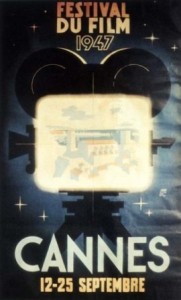
The 2nd Cannes Film Festival was held from 12 to 25 September 1947. The new building that was meant to host the festival, the Palais du Festival, was still not ready, and the festival was held amid many technical and financial problems. In 1947, the entire jury of the Festival were French. Six awards were given to films of different categories.

Chronicle of Poor Lovers is a 1954 Italian drama film directed by Carlo Lizzani. It competed for the Grand Prix at the 1954 Cannes Film Festival.
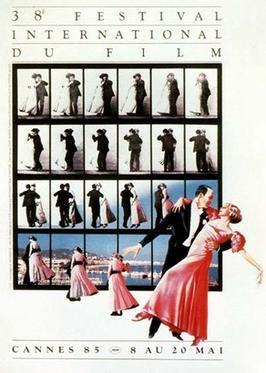
The 38th Cannes Film Festival took place from 8 to 20 May 1985. Czechoslovakian filmmaker Miloš Forman served as jury president for the main competition. Yugoslavian filmmaker Emir Kusturica won the Palme d'Or, the festival's top prize, for the drama film When Father Was Away on Business.
Moufida Tlatli was a Tunisian film director, screenwriter, and editor. She is best known for her breakthrough film The Silences of the Palace, which won several international awards and was praised by critics. She made two more well received movies,The Season of Men and Nadia and Sarra.
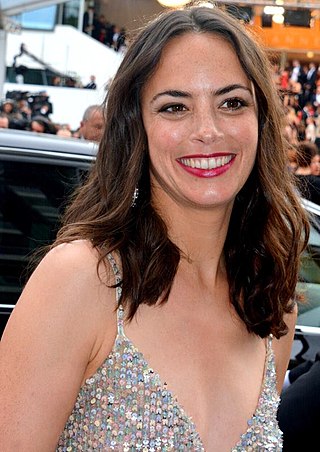
Bérénice Bejo is a French-Argentine actress best known for playing Christiana in A Knight's Tale (2001) and Peppy Miller in The Artist (2011). Her work in the latter earned her a nomination for the Academy Award for Best Supporting Actress and won her the César Award for Best Actress. For her performance in The Past, she won Best Actress at the Cannes Film Festival in 2013 and was nominated for a César.

Yamina Bachir was an Algerian film director and screenwriter. Her film Rachida was screened in the Un Certain Regard section at the 2002 Cannes Film Festival. According to Roy Armes, Rachida is 'the first 35mm feature directed by an Algerian woman in Algeria'. The film was primarily financed by French and European funding companies. It was popular in Algeria and was distributed internationally in France.
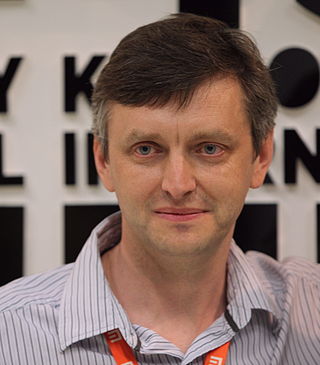
Sergei Vladimirovich Loznitsa or Serhii Volodymyrovych Loznytsia, is a Ukrainian director of Belarusian origin known for his documentary as well as dramatic films.
The Fifth Column is a Lebanese-American short film, directed by Vatche Boulghourjian. The film depicts an atmosphere of desperation in the Armenian quarter Bourj Hammoud, a suburb of Beirut. The film is entirely in Western Armenian dialect.

Nila Madhab Panda is an Indian film producer and director. Panda has directed and produced over 70 films, documentaries, and shorts based on social issues, such as climate change, child labor, education, water issues, sanitation and other developmental issues in India. Many of his films are based on his own experiences. He has won several awards and received critical acclaim for his films which have been described as "entertaining yet socially relevant."
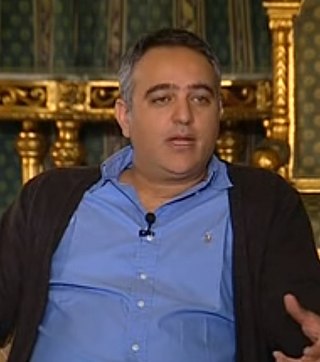
Mohamed Hefzy, is an Egyptian film producer and screenwriter. One of the leading film producers in Middle East and Africa, Screen International named him as the only Arab among 30 future leaders in film production in 2013. In 2016, Hefzy was chosen by Variety on top of a list of "Ten names you need to know in the Arab Film Industry" and included him in the Variety 500.

Sameh Alaa is an Egyptian film director. Born in Cairo, he studied at Cairo University, before moving to Europe. In 2020, he became the first Egyptian director to have a film screened in the Short Film Competition section at the Cannes Film Festival. His film, I Am Afraid to Forget Your Face, won the Short Film Palme d'Or at the 2020 Cannes Film Festival, making it the first Egyptian film to achieve this honor. In June 2021, he was named one of the six jury members for the Cinéfondation and Short Films section at the 2021 Cannes Film Festival.

Boy from Heaven, released in most English-speaking countries as Cairo Conspiracy, is a 2022 Arabic-language political thriller film directed by Swedish filmmaker Tarik Saleh. The film is a co-production between Sweden, France and Finland.
References
- ↑ "Festival de Cannes: Marouf, the Cairo Cobbler". festival-cannes.com. Retrieved 2009-01-05.